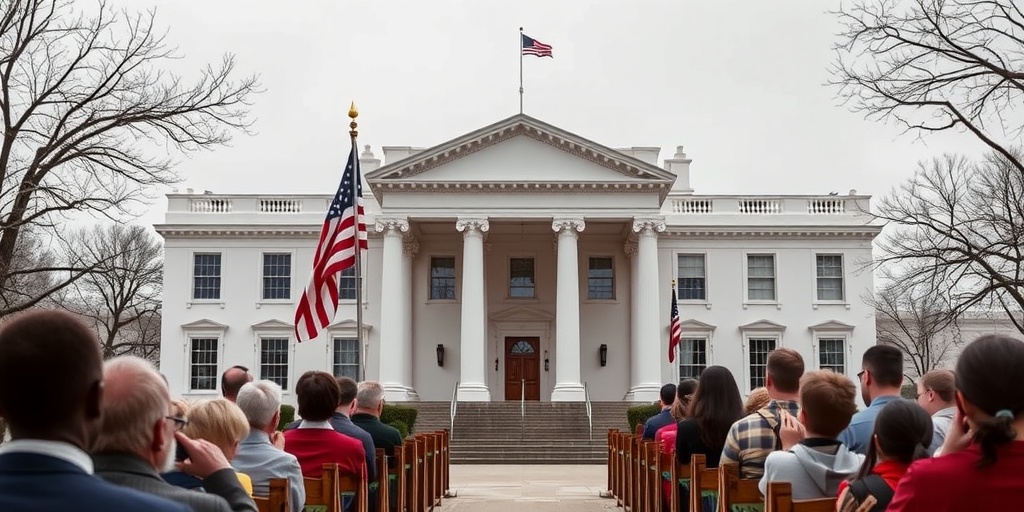Now Reading: Why Republicans Seek to Abolish the Education Department
-
01
Why Republicans Seek to Abolish the Education Department
Why Republicans Seek to Abolish the Education Department

Trump’s Push to Abolish the Education Department: A Look into the Ongoing Debate Over Federal Control in Education
In the wake of the Education Department’s establishment in 1980, the Republican Party has long sought to dismantle it, as evidenced by a policy platform approved just two months after its inception. Now, over four decades later, President Donald Trump appears poised to come closer than any other Republican leader to realizing that goal. While eliminating the Education Department would necessitate Congressional approval, Trump is reportedly drafting an executive order aimed at dismantling the agency, reigniting a contentious debate over the role of federal oversight in education.
Trump’s commitment to this initiative reflects a broader unity within the Republican Party, bridging the gap between traditional establishment Republicans and fervent supporters of his Make America Great Again movement. Christopher F. Rufo, a senior fellow at the conservative Manhattan Institute, described the situation as a "counterrevolution against a hostile and nihilistic bureaucracy," capturing the urgency felt by proponents of this agenda.
Historically, opposition to the Education Department began with its inception, as many Republicans decried President Jimmy Carter’s 1979 enactment of the law creating the department. Their arguments centered around the principles of limited government, fiscal prudence, and local control, positing that education should be managed at the state and local levels instead of through federal mandates. This sentiment gained momentum with Ronald Reagan’s election in 1980, who proposed eliminating the agency in his 1982 State of the Union address, stating, “We must cut out more nonessential government spending and root out more waste.”
Despite Reagan’s fervent advocacy, his attempts faced opposition from the Democratic majority in Congress, and the call for the department’s elimination faded, though it never completely vanished from the political discourse. In the mid-1990s, former Speaker Newt Gingrich reiterated calls for abolishing the agency, and during the 2008 Republican presidential primary, both Congressman Ron Paul and former Governor Mitt Romney echoed sentiments of drastically reducing or entirely eliminating the Education Department.
Yet, when similar proposals were introduced within a Republican-controlled House last year, they ultimately failed to pass, despite significant support from party members—161 Republicans backing the measure against just 60 opposing it. The Education Department’s primary responsibilities include distributing federal funding to public schools, administering financial aid for college, managing federal student loans, enforcing civil rights laws in educational institutions, and supporting programs for students with disabilities.
John B. King Jr., who served as the Education Secretary during the Obama administration, stressed the vital role of the department in upholding civil rights, asserting that dismantling it would be detrimental to students and families.
As Trump embarks on his 2024 campaign, he has intensified his criticism of the Education Department, capitalizing on a growing backlash against COVID-19 regulations concerning school closures and educational protocols. This populist movement, which emerged in response to concerns about progressive policies and educational standards, has positioned parents as a powerful constituency in the ongoing debate over educational governance.
Acknowledging this shift, Trump has connected his goal of abolishing the Education Department with the wider mission of eradicating diversity, equity, and inclusion programs from the federal landscape, a theme that has gained prominence in his policy proposals. A draft of an executive order purportedly indicates that his main directive to Education Secretary Linda McMahon involves the termination of any remaining diversity initiatives within the department.
Further amplifying his stance, Trump has identified gender and transgender issues prominently in his campaign materials, reiterating concerns associated with parental rights and educational content. As Frederick Hess of the American Enterprise Institute observed, Trump’s renewed focus on these issues reflects the heightened populist sentiment seeking greater alignment of governmental actions with parental interests.
Additionally, Project 2025, a right-wing blueprint outlining a comprehensive plan for federal government overhaul, supports the dismantling of the Education Department. The 992-page document criticizes the agency for fostering what it describes as “racist, anti-American, ahistorical propaganda” in classrooms, arguing for a return of educational governance to state and local authorities.
Critics of the proposed dismantling warn that abolishing the department would undermine essential civil rights protections and hinder support services for students. They argue that despite the shifting political climate, the federal role in education is vital for ensuring equity and access to quality education for all students, particularly marginalized groups.
In summary, the ongoing discourse surrounding the fate of the Education Department highlights the complex interplay between federal oversight and local control in the education sector, with Trump positioning this issue as central to his political strategy as he prepares for the upcoming elections. As both supporters and opponents of the initiative await further developments, the implications of such actions will undoubtedly reverberate through American society, influencing educational policy and access for generations to come.
Stay Informed With the Latest & Most Important News
Previous Post
Next Post
-
 01New technology breakthrough has everyone talking right now
01New technology breakthrough has everyone talking right now -
 02Unbelievable life hack everyone needs to try today
02Unbelievable life hack everyone needs to try today -
 03Fascinating discovery found buried deep beneath the ocean
03Fascinating discovery found buried deep beneath the ocean -
 04Man invents genius device that solves everyday problems
04Man invents genius device that solves everyday problems -
 05Shocking discovery that changes what we know forever
05Shocking discovery that changes what we know forever -
 06Internet goes wild over celebrity’s unexpected fashion choice
06Internet goes wild over celebrity’s unexpected fashion choice -
 07Rare animal sighting stuns scientists and wildlife lovers
07Rare animal sighting stuns scientists and wildlife lovers




















